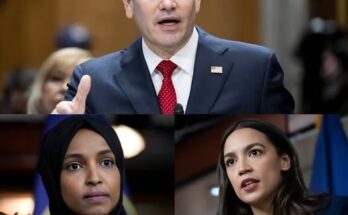In a series of resurfaced clips and interviews, Lil Wayne has once again accused Birdman of unfair profit distribution, suggesting that despite Cash Money’s massive success, he never received a fair cut of what he helped build. But Birdman isn’t backing down.
In a recent sit-down with Nick Cannon, Birdman dropped a bombshell — claiming that Cash Money Records has invested over $2 billion into the careers of its three biggest stars: Lil Wayne, Nicki Minaj, and Drake.
“We spent over two billion building this legacy,” Birdman told Cannon. “People don’t see that part — the studios, the videos, the marketing, the teams. This wasn’t just luck; this was investment.”
The statement immediately sent shockwaves through hip-hop circles, reviving one of the genre’s most famous and complicated feuds.
The Money War Behind the Music
Lil Wayne’s issues with Birdman stretch back nearly a decade. In 2014, Wayne famously called himself a “prisoner” under Cash Money Records, claiming Birdman withheld payment and delayed the release of his long-awaited album Tha Carter V.
After years of legal battles, Wayne eventually won a multi-million-dollar settlement and parted ways with the label — but resentment clearly still lingers.
Wayne’s latest remarks suggest he still believes Birdman profited disproportionately from the empire they built together — one that launched Young Money Entertainment, home to Drake, Nicki Minaj, and several other chart-topping acts.
“I gave my life to that label,” Wayne said in a past interview. “But I didn’t get what I earned. I built that house — they just locked the doors.”
Birdman’s Counterclaim: “This Wasn’t Free Money”
Birdman’s recent comments, however, paint a very different picture. According to him, Cash Money didn’t just hand out opportunities — they built the infrastructure that turned Wayne, Drake, and Nicki into global icons.
He emphasized that running a label at that level means constant reinvestment: production costs, promotion budgets, world tours, creative direction — all of which require massive spending.
“People talk about money like it just falls from the sky,” Birdman said. “But when you’re talking about Wayne, Nicki, Drake — those careers cost money. Big money. Nobody talks about that side.”
Birdman insisted that every dollar spent on music videos, tours, or PR campaigns came from Cash Money’s pocket — and that the artists saw massive returns as a result.
Still, critics argue that even if Birdman’s numbers are true, $2 billion sounds excessive — and question where that figure really comes from.
The $2 Billion Debate
Industry analysts were quick to dissect Birdman’s claim. While Cash Money undeniably generated billions in revenue through album sales, streaming, merchandise, and touring, few believe that $2 billion was truly “invested” rather than earned.
“Birdman is likely talking about lifetime gross revenue, not direct investment,” said music business journalist Marcus Green. “That number might include marketing budgets, distribution deals, and partnerships over 20 years. Still, it’s a massive figure that shows how big Cash Money really became.”
Indeed, from Tha Carter III to Scorpion, from Pink Friday to Views, the Cash Money–Young Money era dominated charts for over a decade. Few labels in hip-hop history have created such a run — or such controversy.
A Complicated Legacy
Regardless of whose numbers are right, the Birdman–Wayne saga represents one of music’s most complex relationships: father and son, mentor and mentee, label head and artist.
For years, Birdman referred to Lil Wayne as his “son.” Wayne even mirrored that love — until money got in the way.
Now, their dynamic feels permanently fractured. Yet both men continue to shape the culture. Birdman remains a mogul behind the scenes; Wayne, a legend who paved the way for an entire generation.
Drake and Nicki Minaj — both protégés of Wayne — owe much of their early success to the infrastructure Cash Money created. But as Wayne once said, “It’s not about who made who — it’s about who got paid.”
Fans React: “Business or Betrayal?”
Online, fans are torn. Some argue that Wayne deserves full credit — that without him, Cash Money wouldn’t have reached its golden era. Others side with Birdman, suggesting the label’s business acumen was crucial in turning talent into superstardom.
“Wayne gave them the sound, Birdman gave them the system,” one fan tweeted. “They needed each other — until the money got too big.”
The Bottom Line
While Birdman’s $2 billion claim raises eyebrows, one truth remains: Cash Money Records changed the course of hip-hop forever.
From Wayne’s lyrical reign to Drake’s streaming empire and Nicki’s barrier-breaking success, their collective influence is worth far more than numbers on a spreadsheet.
But behind the hits, there’s still tension, mistrust, and a question that won’t go away —
Who really got paid when the music stopped?


